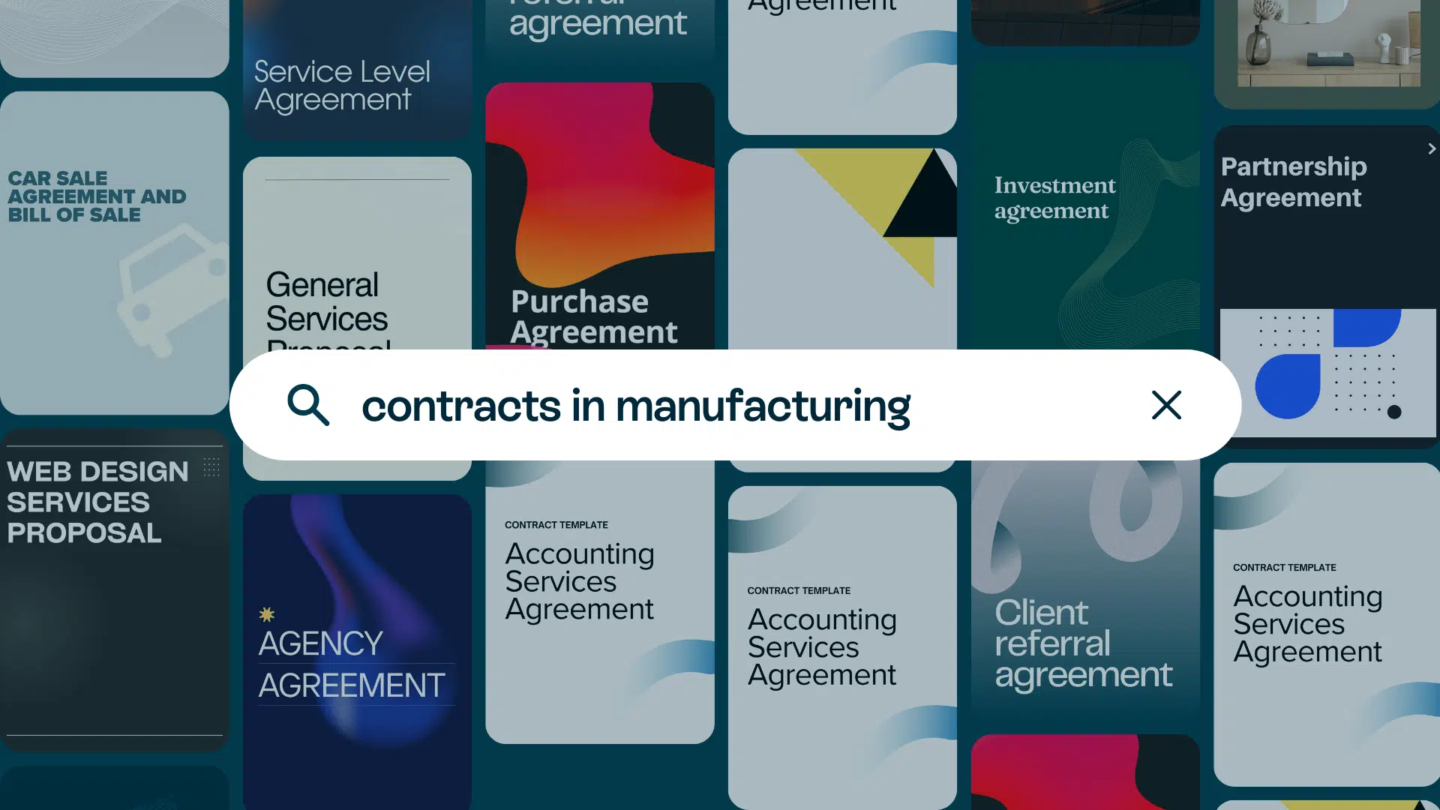Cloud contract management is a crucial aspect of modern business operations. In today’s digital age, where organisations rely heavily on technology for various processes, managing contracts efficiently and effectively is essential.
This article will explore the basics of cloud contract management, the evolution of contract management, the benefits it offers, how to choose the right system, and implementing it successfully in your organisation.
The basics of cloud contract management
Definition and importance of cloud contract management
Cloud contract management refers to the practice of storing and managing contracts in a cloud-based system or platform. It provides a centralised and secure location for businesses to create, store, and track their contracts.
In today’s digital age, where businesses are increasingly relying on technology to streamline their operations, cloud contract management has become an essential tool for organisations of all sizes. By leveraging cloud technology, companies can eliminate the need for physical storage space and reduce the risk of document loss or damage. Additionally, cloud contract management offers the convenience of easy access to contracts from anywhere with an internet connection, allowing businesses to operate efficiently in a remote work environment.
Read also: What is contract management? A complete guide

However, the benefits of cloud contract management go beyond convenience and accessibility. One of the key advantages is enhanced collaboration among team members. With cloud contract management, multiple stakeholders can work on a contract simultaneously, making real-time updates, comments, and document sharing seamless. This collaborative approach not only improves efficiency but also promotes transparency and accountability within the organisation.
Another important aspect of cloud contract management is compliance. Businesses need to ensure that their contracts adhere to legal and regulatory requirements. Cloud contract management systems provide version control and audit trails, allowing organisations to track changes made to contracts and maintain a comprehensive record of contract history. This not only simplifies compliance but also minimises the risk of disputes or legal issues arising from contract mismanagement.
Furthermore, cloud contract management streamlines contract processes by automating workflows and reducing the need for manual tasks. With features like automated notifications and reminders, businesses can stay on top of contract deadlines, renewals, and other important milestones. This automation not only saves time but also reduces the likelihood of errors or oversights that can have costly consequences.
Key components of cloud contract management
A comprehensive cloud contract management system typically consists of various components to facilitate efficient contract management:
- Contract Repository: A central location to store all contracts securely and provide easy access to authorised users. The contract repository ensures that contracts are organised and readily available whenever needed, eliminating the hassle of searching through physical files or multiple digital folders.
- Contract Creation: Tools and templates to create contracts with standardised clauses and terms. These tools streamline the contract creation process by providing pre-defined templates that can be customised to meet the specific needs of each contract. This not only saves time but also ensures consistency and accuracy in contract drafting.
- Contract Authoring: Collaborative features to allow multiple stakeholders to contribute to contract drafting and review. Cloud contract management systems enable real-time collaboration, allowing team members to work together on contract authoring, making edits, and providing feedback. This collaborative approach promotes efficiency and accuracy in contract creation.
- Contract Tracking: Capabilities to monitor contract status, milestones, and key dates. With contract tracking functionalities, businesses can easily keep track of contract progress, ensuring that all parties involved are aware of important deadlines, renewal dates, and other critical milestones. This helps organisations stay organised and ensures that contracts are managed effectively.
- Contract Analytics: Reporting and analytics functionalities to gain insights into contract performance and identify risks or opportunities. Cloud contract management systems provide analytics tools that allow businesses to analyse contract data, identify trends, and make informed decisions. By gaining insights into contract performance, organisations can optimise their contract management processes and identify potential risks or opportunities.
Read also: Top 10 contract management software

The evolution of contract management
Traditional contract management vs. cloud contract management
Traditionally, contract management involved storing physical documents, manually tracking key dates, and relying on paper-based approval processes. This approach posed several challenges, such as limited accessibility, document loss or damage, and difficulties in collaboration and version control.
Cloud contract management, on the other hand, harnesses the power of cloud technology to overcome these limitations. By digitising contract management, organisations can access contracts from anywhere, reduce the risk of document loss, enhance collaboration, and automate various processes.
The role of technology in contract management
Technology plays a significant role in modern contract management. It empowers organisations to streamline processes, improve accuracy, and increase efficiency. With cloud contract management systems, businesses can leverage features such as electronic signatures, automated notifications, and contract workflow automation.
Moreover, advanced technologies like artificial intelligence and machine learning are revolutionising contract management. These technologies can automatically extract key contract data, identify risks, and provide insights into contract performance and trends.
Read also: Top 4 benefits of SaaS contract management

Benefits of cloud contract management
Efficiency and productivity gains
Cloud contract management offers several benefits that enhance efficiency and productivity within an organisation. With easy access to contracts, teams can collaborate seamlessly, reducing the need for back-and-forth communication and speeding up the contract lifecycle. Automated workflows and alerts ensure timely approvals and reduce manual follow-ups.
Furthermore, cloud contract management eliminates the time-consuming task of searching for physical documents, as contracts can be quickly located and retrieved using search functions. This reduces administrative burden and allows employees to focus on more value-added activities.
Enhanced security and compliance
Data security and compliance are major concerns for organisations. Cloud contract management systems address these concerns by providing robust security measures. They offer features like encryption, access controls, and user authentication, ensuring only authorised individuals can view and edit sensitive contract information.
Additionally, cloud contract management allows for better compliance management. With centralised contract storage, organisations can easily track contract revisions and maintain a clear audit trail. This aids in meeting regulatory requirements and mitigating legal risks.
Choosing a cloud contract management system
Essential features to look for
When selecting a cloud contract management system, it is important to consider specific features that align with your organisation’s needs:
- Customisability: The system should allow customisation to fit your unique contract management requirements.
- Integration: Ensure that the system can seamlessly integrate with other business tools and software you use.
- User-Friendliness: Look for an intuitive and easy-to-use interface to ensure quick user adoption.
- Security: Check for robust security measures, including data encryption, access controls, and compliance with industry standards.
- Scalability: Consider the system’s ability to handle an increasing volume of contracts as your business grows.
Evaluating vendor capabilities
Before finalising a cloud contract management vendor, evaluate their capabilities thoroughly. Look for testimonials, case studies, and customer reviews to gauge their track record. Consider factors such as implementation support, training options, and ongoing customer support.
Read also: Top benefits of using legal contract management software?

Implementing cloud contract management in your organisation
Steps to successful implementation
Implementing cloud contract management requires careful planning and execution. Follow these key steps for a successful implementation:
- Assess Needs and Goals: Understand your organisation’s specific contract management requirements and define goals for the implementation.
- Choose the Right System: Select a cloud contract management system that aligns with your needs and budget.
- Data Migration and Integration: Migrate existing contracts to the new system and integrate it with other relevant software.
- User Training: Provide comprehensive training to employees to ensure smooth adoption and utilisation of the system.
- Change Management: Communicate the benefits of cloud contract management to stakeholders and manage any resistance to change.
- Ongoing Maintenance and Support: Regularly update the system, address user queries, and monitor performance to ensure optimal utilisation.
Overcoming potential challenges
During the implementation process, organisations may face challenges such as resistance from employees, data migration complexities, or integration issues. It is crucial to address these challenges proactively.
Communicate the benefits of the new system and provide ongoing support and training to ensure employee buy-in. Work closely with your vendor and allocate sufficient resources for data migration and integration. Regularly monitor the implementation process and address any issues promptly to keep the project on track.
The key takeaways
Cloud contract management offers significant advantages over traditional methods. By leveraging cloud technology, organisations can enhance efficiency, increase productivity, improve security and compliance, and streamline their contract management processes. By choosing the right system and implementing it successfully, businesses can unlock the full potential of cloud contract management and gain a competitive edge in today’s fast-paced business landscape.







